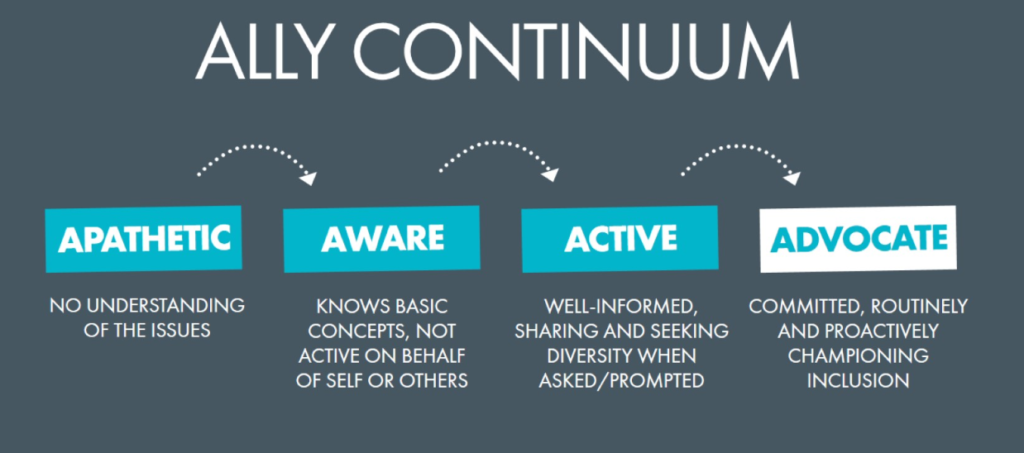This morning, I heard a Starbucks barista talking about how she was so sick about the incivility of political discourse around her that she’d made a conscious decision:
The minute she logged onto Facebook and saw a single political post, she would immediately log off again.
She’s not the only one feeling that way…
In some circles, I’m noticing people are beginning to feel exhausted, emotionally. They’re turning off and tuning out. Deactivating their Facebook profiles. Dis-engaging from the conversation.
And that’s a concern.
After last week’s blog post, one reader wrote to me and said:
“Last night, I laid in bed feeling so tired. Tired of fighting, tired of pushing, tired of always being on the front line, tired of being the voice for those who were silenced, disenfranchised, marginalized, dehumanized, beaten, battered, raped and murdered. Just so tired. I’ve been an activist my whole life, hoping to be a catalyst of change, inspired by those who have come before me and yet as time passes I’ve found myself complacent, disconnected, downtrodden and often dead inside… feeling, and just wondering, how I could possibly be enough to make a difference now.”
And I get it, I do…
It’s exhausting to care this much, for this long.
Some of us, like the reader above, have been fighting for equality and inclusion for a really long time (many much longer than I), and some days it’s true:
You feel like giving up.
You feel tired.
You feel like it’s impossible to make a difference.
It’s tiring to have to fight every day for what you believe in.
And then I think about how the LGBT community has advocated for its own protection. I think about how we’ve had sexual orientation and gender identity added to non-discrimination policies on company websites. I think about how we’ve managed to get so many companies to take a stand on political and social issues—whether that’s transgender bathroom issues in North Carolina, or religious freedom laws in Indiana.
And I’m encouraged.
Because while somebody else’s victory shouldn’t be mistaken for everybody’s victory, it proves that collectively, we CAN make a difference. We just need to decide whether we’re going to sit on the sidelines or lead the charge for change.
That’s why we need stories of hope—to lift our spirits and keep us in the game. That’s why we need your stories of courage and bravery and risk-taking in support of others. That’s why we need your stories of allyship.
That’s why we need you to be an ally.
As my friend KC Carter said this morning, “Do something to be the stitches.”
“Between stimulus and response there is a space. In that space is our power to choose our response. In our response lies our growth and our freedom.” — Victor Frankl
Diversity and inclusion doesn’t just “happen” in organizations. Which is why it’s time for all of us to level up. To do that, think about yourself on an Ally Continuum, which I mention towards the end of my talk for Erin Weed’s Evoso Live event last year.
This is the model I like to use to help people understand where they are and where all of us are on our journey of allyship:

1. If you’re apathetic and you don’t have an understanding of any of the issues surrounding diversity and inclusion that are in the news today, get aware. Learn about them.
2. If you’re aware, you know your basic concepts. You may not be active on behalf of yourself or others yet, but you know the issues. So the question is: How do you activate yourself?
3. If you’re active, you’re likely well informed, and are sharing and seeking diversity. You may not be doing it proactively, which means you wait to be asked or wait to be prompted. So then the question is: How can you move from that to true advocacy?
4. Meanwhile, as an advocate, you’re committed, and you’re routinely and proactively championing inclusion.
When you remember that we’re in this together, it’s comforting and strengthening. It helps us remember what’s possible.
In the words of the aforementioned reader:
“We are the children of change, I know in every cell of my body, but just [seemed] to have forgotten, that one person can make a difference, that I make a difference, [that] you make a difference and that each one of us has the power to effectuate change if we come from a place of love. As love will always conquer hate…”
We can’t forget that we have the power to make a difference.
We can’t forget that we have the power to be the change we seek.
So my question to you is:
How are YOU choosing to be an ally this week?
If you’re on Twitter, send me a note at @jenniferbrown with the hashtag #MyAllyStory, or get in touch with me here.
I look forward to connecting with you!
—
To find out more about my thoughts on allyship, download the first chapter of my book “Inclusion: Diversity, The New Workplace & The Will To Change” for free.

Recent Comments